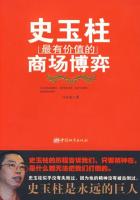Meanwhile the council was still engaged in discussing the authority of the bishops. On the ground that the Fathers should define at one and the same time both the rights of the bishops and the rights of the Holy See Cardinal Guise, who represented the Gallican school of thought, brought forward certain proposals highly derogatory to the prerogatives of the Pope. In face of this counter-move the legates were firm but conciliatory. They pointed out that the whole question of the jurisdiction of the Holy See had been decided already by the Council of Florence and that the decrees of Florence could not be watered down at Trent. On this question the Italian bishops found themselves supported by the vast majority of the Spanish, Austro-German and Portuguese representatives; but in deference to the request of the Pope, who wished that nothing should be defined unless with the unanimous consent of the Fathers, and to the feelings of the French, whose secession from the council was anticipated, it was agreed to issue no decree on the subject. As the supreme authority of the Pope had been recognised implicitly by the council[6] no definition was required.
As a result of the negotiations inside and outside the council it was possible to hold the 23rd public session on the 15th July 1563. In this it was defined that the priesthood of the New Law was instituted by Christ, that there were seven orders in the Church about two of which, the priesthood (/de sacerdotibus/) and the diaconate (/de diaconis/) express mention is made in the Scriptures, that the bishops who have succeeded to the place of the Apostles pertain especially to the hierarchy and are superior to priests, that neither the consent of the people nor of the civil power is necessary for the valid reception of orders, and that bishops who are appointed by the authority of the Roman Pontiff are true bishops.[7] The question whether the duty of episcopal residence is /de jure divino/, about which such a protracted and heated controversy had been waged, was settled amicably by deciding that the bishops as pastors are bound by divine command to know their flocks, and that they cannot do this unless they reside in their dioceses. At this session there were present four cardinals, three patriarchs, twenty-five archbishops and one hundred and ninety-three bishops.
Many of the bishops were anxious to return to their dioceses, and nearly all of them hoped for a speedy conclusion of the council. The Pope, the Emperor, and the King of France were in agreement, though for different reasons, in endeavouring to dissolve the assembly as soon as possible. The sacrament of Matrimony was next proposed for discussion. The French party wished that marriages contracted without the consent of the parents as well as clandestine marriages should be declared invalid, but the council refused to make the validity of marriage dependent upon parental consent. In deference to the wishes of Venice, which stood in close relation to the Greeks, it was agreed to define merely that the Church does not err when she states in accordance with the apostolic and evangelic teaching that the bond of marriage is not broken by adultery. In the 24th public session (11th Nov. 1563) the decrees on Matrimony were proclaimed.
The greatest anxiety was displayed on all sides to bring the work to a conclusion. The action of the papal legates in proposing that the interference of Catholic rulers in ecclesiastical affairs should be considered and if necessary reformed did not tend to delay the dissolution. The princes were most anxious to reform the Pope and clergy, but they were determined not to allow any weakening of their own so-called prerogatives. In accordance with the general desire the addresses were cut short, and so rapid was the progress made that the last public session was held on the 3rd and 4th December 1563. The decrees on Purgatory, on the honour to be paid to relics and images of Saints and on Indulgences were passed. It was agreed, furthermore, that in regard to fast days and holidays the usage of the Roman Church should be followed, and that the Holy See should undertake the preparation of a new edition of the missal and breviary. The decrees that had been passed under Paul III. and Julius III. were read and approved. The legates were requested to obtain the approval of the Holy Father for the decisions of the council, and Cardinal Guise in the name of the bishops returned thanks to the Pope, the Emperor, the ambassadors of the Catholic nations, and to the legates. Finally the Fathers subscribed their names to the acts of the council. There were then present six cardinals, three patriarchs, twenty-five archbishops, one hundred and sixty-seven bishops, and nineteen procurators.
The Council of Trent met in peculiarly difficult circumstances, and it carried on its work in face of great opposition and disappointments.















